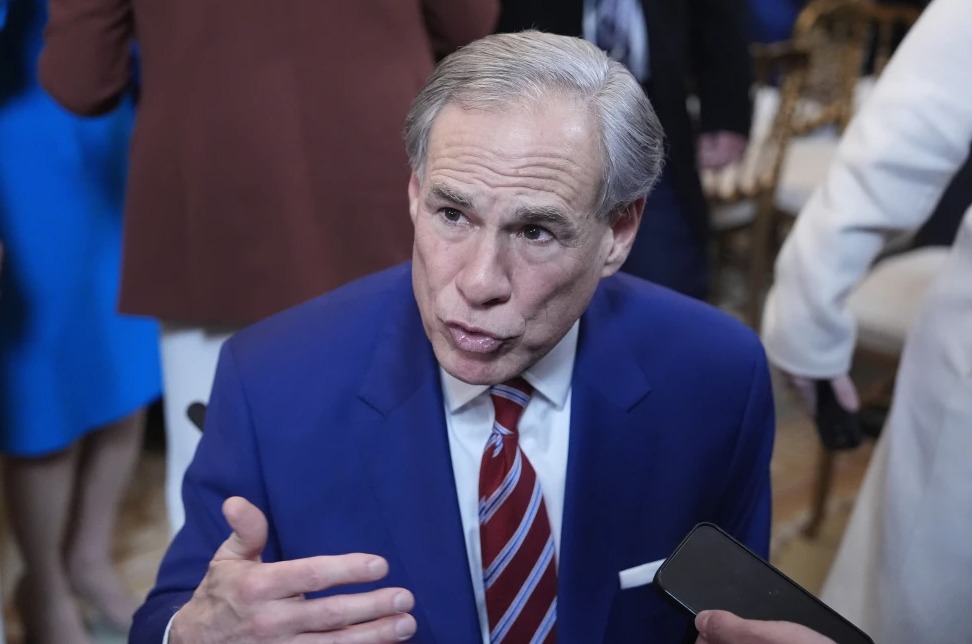
Breaking News | Texas lawmakers approved a $1 billion education bill Thursday that permits families to pay for private school tuition using public funds:
In a sweeping move that could reshape the landscape of education in Texas, state lawmakers on Thursday approved a $1 billion education reform bill that will allow families to use taxpayer dollars to cover private school tuition and related expenses. The highly contested legislation, which passed after months of political wrangling and public debate, represents one of the most significant education policy shifts in the state’s history.
Supporters call the bill a victory for parental choice and a necessary step toward fixing an underperforming public school system. Critics, meanwhile, argue it undermines public education by diverting funds and increasing inequality.
The legislation establishes what’s known as an Education Savings Account (ESA) program. Under this system, eligible families can receive up to $8,000 per student each year to use on private school tuition, homeschooling materials, tutoring services, or other approved educational expenses. The bill allocates $1 billion to launch the program, which is set to begin in the 2025–26 academic year.
“This bill is about freedom—freedom for parents to decide what kind of education is best for their child,” said Gov. Greg Abbott, who made school choice a centerpiece of his agenda and is expected to sign the bill into law within days. “Texas is leading the way in giving families control over their educational future.”
The bill’s passage was far from guaranteed. Earlier versions of similar legislation had failed multiple times in the Texas House, where rural Republicans often joined Democrats in opposition due to fears of harming local school districts. But after months of negotiations, a compromise was finally reached: in addition to the ESA program, the bill also includes $400 million in new funding for public schools, including increased teacher pay and support for special education programs.
“This was a balancing act,” said House Speaker Dade Phelan (R-Beaumont). “We worked to address the concerns of our members while still advancing a major reform effort. At the end of the day, we found common ground.”
The final vote in the Texas House was 78–68, with 12 Republicans joining most Democrats in opposition. In the Senate, the bill passed with a wider margin of 22–9.
Aside from creating the ESA program, the bill contains several notable provisions:
- Income-based eligibility: Initially, the program will be limited to families earning below 250% of the federal poverty line, roughly $75,000 for a family of four. Lawmakers hinted that future expansions could widen eligibility.
- Priority for students with disabilities: Students with special needs will receive higher funding allocations, potentially exceeding $10,000 annually.
- Public school funding guarantee: Districts that lose students to private schools will receive transitional aid for up to two years to soften the financial impact.
- Accountability measures: Participating private schools must conduct standardized testing and report graduation and college matriculation rates to the state.
- Teacher pay raise: All public school teachers will receive a $2,000 across-the-board pay raise beginning in the next school year.
Education Commissioner Mike Morath said the bill represents a “modernized approach to education funding” and argued that ESAs give Texas a competitive advantage in attracting families and businesses.
Advocates for school choice hailed the legislation as a long-overdue correction to what they see as a rigid, one-size-fits-all education system. Organizations such as the Texas Public Policy Foundation and Americans for Prosperity Texas mobilized aggressively in favor of the bill, running ads and lobbying legislators.
“Every child deserves a chance to succeed, and that means giving parents options,” said Mandy Drogin, a senior education policy analyst with the Texas Public Policy Foundation. “This bill breaks down barriers and puts students—not systems—first.”
However, critics see it differently. Teachers unions, superintendents, and progressive advocacy groups warned that the new law could drain funding from already under-resourced public schools, particularly in rural and inner-city areas.
“Let’s be clear: this is a private school voucher program using public money,” said Zeph Capo, president of the Texas chapter of the American Federation of Teachers. “It creates a two-tiered education system where the privileged can thrive and everyone else is left behind.”
In a fiery floor speech, Rep. Gina Hinojosa (D-Austin) called the bill a betrayal of Texas public school teachers and students.
“You cannot say you support public education while gutting its foundation,” Hinojosa said. “This bill doesn’t fix our schools—it abandons them.”
One of the bill’s most significant hurdles was opposition from rural lawmakers in the Republican Party. Many represent districts where the public school is not just an educational institution but also a community hub.
“Private schools are rare in my district. This bill won’t help most of my constituents—it will hurt them,” said Rep. Ken King (R-Canadian), who voted against the legislation. “We should be focused on improving our schools, not shifting blame.”
To win over skeptical lawmakers like King, the bill was amended to include so-called “hold harmless” provisions—temporary funding guarantees to offset declining enrollment. It also allowed for increased teacher stipends in rural districts.
That appeared to sway just enough rural conservatives to allow the bill’s passage, though tensions remain.
The bill’s passage is expected to reverberate through Texas politics for years to come. Gov. Abbott has staked a considerable portion of his political capital on passing school choice and could tout this victory in any potential national ambitions.
Meanwhile, the Texas Education Association and other teacher groups have already pledged to target lawmakers who voted for the bill in the upcoming 2026 primaries and general election.
“We won’t forget who stood with our teachers and who didn’t,” said Andrea Chevalier, policy director for Raise Your Hand Texas, an education advocacy group. “This issue is far from settled.”
Early polling indicates the public is sharply divided. A University of Texas/Texas Tribune poll conducted last month found 49% of Texans support some form of ESA or voucher program, while 43% are opposed and 8% remain undecided. Among Republicans, support was stronger (68%), but only 29% of Democrats favored the idea.
With the program set to launch in the 2025–26 school year, state agencies now face a tight timeline to establish regulations, create secure ESA platforms, vet eligible private schools, and ensure transparency in the use of funds.
“This will require a robust system to prevent fraud and ensure accountability,” said Sen. Royce West (D-Dallas), who ultimately voted against the bill but worked on amendment language related to oversight. “Taxpayers deserve to know how their money is being spent.”
The Texas Education Agency (TEA) said it plans to release detailed guidelines by August and will open applications for families by January 2026.
Private schools are watching closely. While many are eager to participate, some religious institutions worry about potential state interference. Others have expressed concern about being overwhelmed by a surge in applicants.
“We welcome the opportunity to serve more families,” said Sister Mary Catherine, principal of St. Anne’s Catholic School in San Antonio. “But we need to be sure the rules respect our religious mission and operational independence.”
Texas now joins a growing list of conservative-led states—including Florida, Arizona, Iowa, and West Virginia—that have implemented large-scale ESA or voucher programs in recent years. With its size and political clout, Texas’s move is likely to influence education policy debates nationwide.
Former U.S. Secretary of Education Betsy DeVos, a vocal advocate for school choice, praised the bill’s passage on social media, calling it “a massive win for freedom in education.”
However, national teachers unions condemned the move. “Texas lawmakers are playing politics with children’s futures,” said Randi Weingarten, president of the American Federation of Teachers.
As the 2026 midterm elections approach, school choice is expected to be a defining issue—not just in Texas, but in swing states where education remains a flashpoint for ideological battles.
For now, the passage of the $1 billion education bill represents a significant turning point for Texas education. Whether it will deliver on its promises—or exacerbate existing disparities—remains to be seen.
“We are entering a new era in education,” said Commissioner Morath. “The work is just beginning.”
Parents like Angela Rodriguez of Houston say they’re hopeful. Her son has struggled in the local public school, and she sees the ESA as a lifeline.
“I finally feel like I have options,” she said. “I just want what’s best for my child.”
But for teachers like Marcus Holloway, a high school science instructor in Lubbock, the bill feels like a setback.
“We’re not afraid of competition—we just want a level playing field,” Holloway said. “Instead, we’re being asked to do more with less, while others get a blank check.”
As the dust settles on one of the most controversial legislative battles in recent memory, one thing is clear: the future of education in Texas is headed into uncharted territory.





